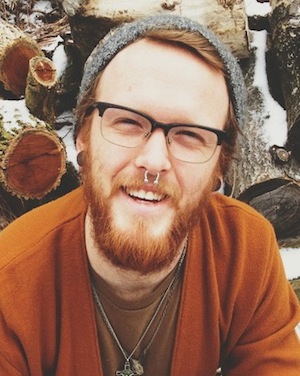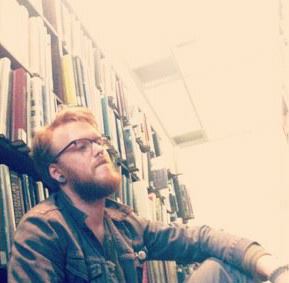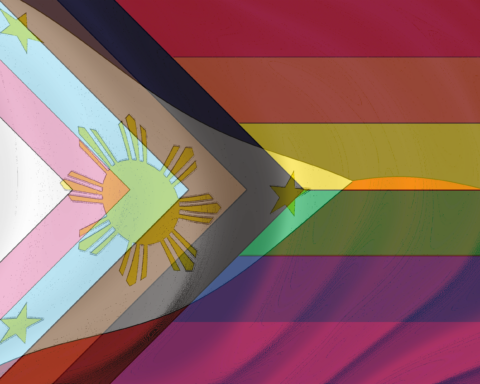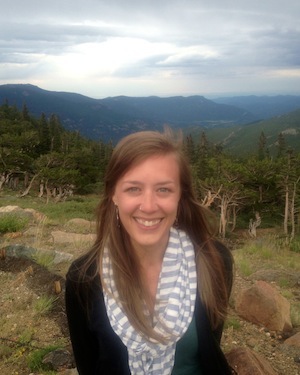Encountering the Tzeltal Christ

I grew up as a son, grandson, and great grandson of missionaries. My grand parents and great grandparents were Presbyterians serving in India, and my parents served all over the world with Mercy Ships and YWAM of missionaries. I witnessed poverty as a child, but usually from a distance. Though my family was poor while we were serving abroad, I was too young to fully understand the struggles of the people with whom we engaged. That said, I was little prepared, when our church, Hot Metal Bridge Faith Community, traveled to Chiapas, Mexico, a few years ago with an organization called Hebron USA, to work with the indigenous Tzeltal people and their Presbyterian Churches.
We found ourselves placed in the remote mountain village of Matzam. Unsure of what exactly our role was in this encounter, we began to live life with them, even if just for a week’s time, working alongside them as they built a new church for their growing faith community. After a week of hard labor – which consisted mostly of mixing and hauling concreto by hand – we sat down with the elders of their local church, for dinner and fellowship. Someone from our group, in an attempt to get to know one another, suggested that we go around the tables and share what we did, you know, “for a living”. I quickly realized how uncomfortable this was going to be. As we went around the table sharing about our jobs and professions I became aware of how privileged our group was to be able to take a week off of our work for a “mission trip”. Simple things we take for granted – such as running water, safe food to eat, minimum wage! – these things were luxuries to them. As the elders shared their stories I choked on their words, as if swallowing something I knew was going to make me ill. Their stories told of the same struggle from one to the next.
___________________________________________
For privileged persons like myself, to live in gospel solidarity is to let the poor be our teachers, and boy do we have a lot to learn!
___________________________________________
For our hosts in Chiapas, to be leaders in their faith communities meant giving up virtually everything. They were all subsistence farmers who cultivated small plots so that they and their families would have something to eat. Before serving as leaders in the church, they had worked in the coffee fields – some eight hours journey away – for months at a time, only to receive only a fraction of the pay they were promised. To serve the church, they had to give up this means of income, as well. Most of them had wives and children who depended on them, but they trusted their community to fill in the gaps where the rain fell short and their crops were sparse. Somehow, all of them were provided for. My heart broke, deep and unforgettably, as we sat at that table together. I saw Christ in the indigenous faces – Christ real and alive, right in front of me, teaching me his humility.
Gustavo Gutierrez, in his famous book A Theology of Liberation, professes,
Our encounter with the Lord occurs in our encounter with others, especially in the encounter with those whose human features have been disfigured by oppression, despoliation, and alienation and who have ‘no beauty, no majesty’ but are things ‘from which men (sic) turn their eyes’ (Isa. 53:2-3). These are the marginal groups, which have fashioned a true culture for themselves and whose values one must understand if one wishes to reach them. The salvation of humanity passes through them; they are the bearers of the meaning of history and ‘inherit the Kingdom’ (James 2:5). Our attitudes towards them, or rather our commitment to them, will indicate whether or not we are directing our existence to conformity with the will of the Father. This is what Christ reveals to us by identifying himself with the poor in the text of Matthew. A theology of the neighbor, which has yet to be worked out, would have to be structured on this basis.
Gutierrez’s “theology of neighbor” in which the “salvation of humanity passes through [the marginalized],” means that Christ is found in the poor and the oppressed. If it is our desire to find, follow, and learn from Christ, we must find, follow, and learn from the poor – for “blessed are the poor in spirit: for theirs is the kingdom of heaven (Matt. 5:3). For privileged persons like myself, to live in gospel solidarity is to let the poor be our teachers, and boy do we have a lot to learn!
 When we left, we asked the regional Tzeltal pastor if we should continue spending the money and time to come to Chiapas on mission trips. After all, wouldn’t a more practical and efficient option be just to raise funds and send the money,? What did we really have to offer? The locals were harder workers than we were by far; they continued working after lunch when we would break for the day! However, the pastor insisted that we needed to be there, that relationships were not built by sending money, but rather through the experience commitment of living life together. In his opinion, not one cent was wasted if it meant we lived life together, even if only for a week each year. We have returned to Chiapas for 7 years now to live with them for a week, and we have been dramatically changed by our experiences. The Tzeltal Christ has taught me that to lead means to serve, to give up everything, no matter how little or much that may be. Meeting Christ in Chiapas has allowed the Scriptures to come to life, walk among us, and challenge us to our core.
When we left, we asked the regional Tzeltal pastor if we should continue spending the money and time to come to Chiapas on mission trips. After all, wouldn’t a more practical and efficient option be just to raise funds and send the money,? What did we really have to offer? The locals were harder workers than we were by far; they continued working after lunch when we would break for the day! However, the pastor insisted that we needed to be there, that relationships were not built by sending money, but rather through the experience commitment of living life together. In his opinion, not one cent was wasted if it meant we lived life together, even if only for a week each year. We have returned to Chiapas for 7 years now to live with them for a week, and we have been dramatically changed by our experiences. The Tzeltal Christ has taught me that to lead means to serve, to give up everything, no matter how little or much that may be. Meeting Christ in Chiapas has allowed the Scriptures to come to life, walk among us, and challenge us to our core.
A Commitment to the Local Poor
On the flight home, I wrestled with how to take what I had learned to heart, not to leave it in Chiapas as a nice memory. I wanted to return to Chiapas as soon as I could; I wanted to live there a while. Life there felt real, raw, and unhindered from all the things of our modern empires that choke the fluidity of the Spirit of God. Returning home felt like entering a prison. And yet, I felt a call to go deeper with this challenge. In some ways, I realized, it would have been easier to leave everything I know and live in this foreign, idealized land than to abandon my privilege in my everyday life. Was my desire to return to Chiapas really a desire to live in solidarity, or was it me trying to find an easy way out of my spiritual struggle at home? How could I heed the call of the Spirit to live the gospel in my time and place, back in Pittsburgh? The Tzeltal Chris called me deeper – and thus began my journey for a local expression of what I had seen in the lives of the poor in Chiapas.
___________________________________________
In some ways, it would have been easier to leave everything I know and live in a foreign land than to abandon my privilege in my everyday life. How could I heed the call of the Spirit to live the gospel in my time and place, back in Pittsburgh?
___________________________________________
I began to read and study, to search for what solidarity might look like in my context and for others trying to do the same. In this search, I came across The Long Loneliness, the autobiography of Dorothy Day, who founded the Catholic Worker movement with Peter Maurin in the early 1930s. Inspired by Christ’s radical call for hospitality, they grew a lay church revolution in the slums of New York characterized by a commitment to the poor in their city and a resistance to the systems that created such poverty. Their resistance didn’t just challenge the status quo, but offered an alternative example in their own lives. The deeper I dug deeper into Day’s story, the more I wished I could see it in action today. It wasn’t until I ran into my friend Christian from Kansas City that I became aware that the movement was still alive – some 200 communities of hospitality and resistance are still active in the United States in the world! Christian told me he volunteered weekly at the Cherith Brook Catholic Worker House, serving breakfast and offering showers to their homeless friends several days a the week. The next time I was in town, I made sure to spend some time at the community; I felt at home right away. Interestingly enough, this “Catholic” community was founded by a Presbyterian pastor. The pastor, his wife and kids, and some dozen others lived together in one house and committed themselves to each other, to Christ, and to the poor in their city.
 I returned home dying to share this vision that was burning in my heart. A little over a year later, some friends and I bought and fixed up the small house where we now practice hospitality and mercy together in what we call The Greenway Community House of Hospitality. It is a small expression of the spirit of the Catholic Worker in Pittsburgh. I share this story not to boast about the great things we have done, but to explain how simple it can be sometimes. Though life in community can be very complicated, we have found it to be worth the sacrifices. Some of our guests are homeless, others are in some sort of difficult transitional period and need a place to call home, even if just for a moment. Our capacity is minimal, but we pray and hope to grow it. We partner with our church, Hot Metal Bridge Faith Community (a Presbyterian and Methodist “union church”), to help serve meals to some 200 people each week at the Table. Two of our house members who have experienced homelessness themselves help run our Homeless Ministry; every Saturday, they pack up a caravan of lunches and travel to the different camps where our friends live.
I returned home dying to share this vision that was burning in my heart. A little over a year later, some friends and I bought and fixed up the small house where we now practice hospitality and mercy together in what we call The Greenway Community House of Hospitality. It is a small expression of the spirit of the Catholic Worker in Pittsburgh. I share this story not to boast about the great things we have done, but to explain how simple it can be sometimes. Though life in community can be very complicated, we have found it to be worth the sacrifices. Some of our guests are homeless, others are in some sort of difficult transitional period and need a place to call home, even if just for a moment. Our capacity is minimal, but we pray and hope to grow it. We partner with our church, Hot Metal Bridge Faith Community (a Presbyterian and Methodist “union church”), to help serve meals to some 200 people each week at the Table. Two of our house members who have experienced homelessness themselves help run our Homeless Ministry; every Saturday, they pack up a caravan of lunches and travel to the different camps where our friends live.
___________________________________________
I share this story not to boast about the great things we have done, but to explain how simple it can be sometimes.
___________________________________________
The Kingdom of God is a mustard seed. It starts small, but it grows subversively in our hearts and spreads from one heart to another. The Gospel calls us to solidarity with the poor with each other, and with Christ, who found in all of us. We are called to let the poor be our teachers – will we take what they share with us to heart?
Solidarity doesn’t look the same for everyone. We’re not all called to start Catholic Worker houses or to live in radically intentional community, but we are all called to solidarity. What might that look like for you? What are you called to do? How is the Lord challenging your privilege, asking you to get uncomfortable, and calling you to step down from power and walk humbly with him, with the poor? If you ask him, you’ll be surprised how joyfully he will wreck your life.
 AUTHOR BIO: Dylan Rooke serves as Peace Discernment Organizer & National Committee Member of the Presbyterian Peace Fellowship. He is an ordained Presbyterian Ruling Elder and Building Manager at Hot Metal Bridge Faith Community – a union church plant of the Presbyterian and Methodist denominations in Pittsburgh, PA. His passions are communal and simple living; the ecumenical unity of all believers; creating art, music and occasional writing/blogging; non-violent peace activism; hospitality to all; riding his bike everywhere; and learning to fix things. He currently resides as Founder/Caretaker at The Greenway Community House of Hospitality, a Catholic Worker expression in the neighborhood of Hazelwood, Pittsburgh.
AUTHOR BIO: Dylan Rooke serves as Peace Discernment Organizer & National Committee Member of the Presbyterian Peace Fellowship. He is an ordained Presbyterian Ruling Elder and Building Manager at Hot Metal Bridge Faith Community – a union church plant of the Presbyterian and Methodist denominations in Pittsburgh, PA. His passions are communal and simple living; the ecumenical unity of all believers; creating art, music and occasional writing/blogging; non-violent peace activism; hospitality to all; riding his bike everywhere; and learning to fix things. He currently resides as Founder/Caretaker at The Greenway Community House of Hospitality, a Catholic Worker expression in the neighborhood of Hazelwood, Pittsburgh.
Read more articles in this series.






Unbound Social